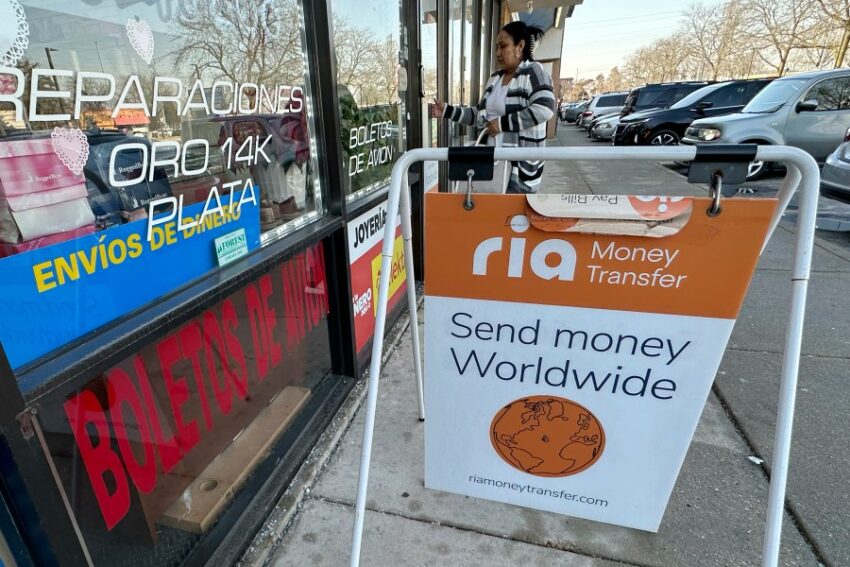EL PASO, Texas (Border Report) – The president of Mexico is urging U.S. lawmakers to exempt her country from a controversial tax on international money transfers the House approved last week.
The 3.5 percent remittance tax on funds sent abroad by individuals who are not U.S. citizens is included in the One Big Beautiful Bill Act the lower chamber of Congress passed on Thursday.
Mexican citizens living abroad last year sent a record $64.7 billion in remittances to their homeland, making it one of the largest sources of revenue for that country.
“The Mexican ambassador has been in contact with many organizations (including) Mexican organizations in the United States – Mexican Americans who are not in agreement and are writing letters and issuing statements saying they don’t agree,” Sheinbaum said at a news conference this week broadcast on social media.
She talked about possible “peaceful mobilizations” to bring international attention to the issue. She restated her argument that Mexicans working in the United States, with or without immigration status, already pay taxes and invoked a 1992 binational agreement that exempts U.S. citizens from being taxed on Mexican income and reportedly extends the same privilege to Mexican citizens.
The tax “affects those in Mexico who have less and are the ones who receive the remittances,” Sheinbaum said. “For us to diminish migration from Mexicans to the United States has to do with them finding jobs in their communities and living well. And remittances help families with scarce resources to not migrate.”
The Joint Committee on Taxation estimated the tax could help the U.S. collect more than $22 billion in remittance taxes from all countries in the next decade.
And Mark Krikorian, executive director of the Center for Immigration Studies, told NBC News that taxing remittances would make it more difficult for immigrants to remain in the U.S. illegally.
“One of the main reasons people come here is to work and send money home,” Krikorian told NBC. “If that’s much more difficult to do, it becomes less appealing to come here.”
But the nonprofit Cato Institute for public policy research expressed privacy concerns about how the tax would be enforced.
“Individuals can avoid the tax if they prove they are U.S. citizens or nationals and use a government-approved service provider to send the funds. That means, in effect, the bill would create a two-tiered system where anyone who wants to avoid the tax must surrender personal information and go through state-sanctioned channels,” Cato Institute policy analyst Nicholas Anthony wrote last week.
That mechanism would not just collect revenue but also store data from senders.
 Read: Read More
Read: Read More




